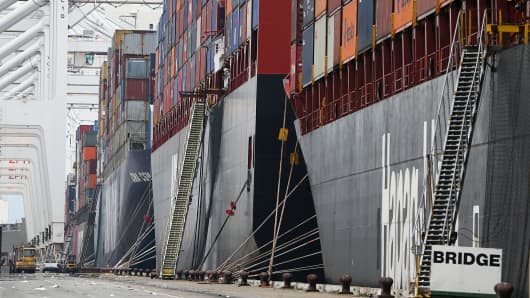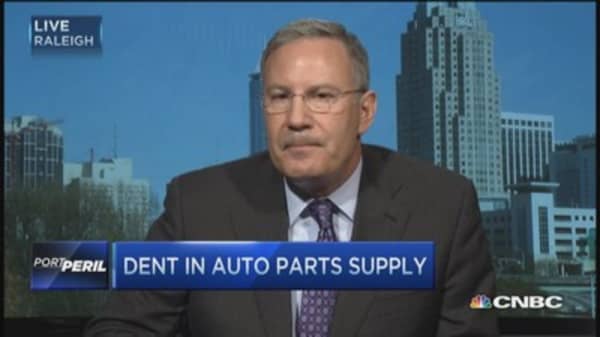With fruit rotting dockside and automakers running out of parts, the West Coast port slowdown is starting to get costly.
The months-long labor dispute has stranded dozens of ships parked at sea waiting to unload, costing tens of millions of dollars in lost business. Some companies are scrambling to reroute shipments through ports that haven't been hit by the slowdown. But that often costs more.
Read More Who's at risk in the L.A. port slowdown
Even if the shippers and dockworkers union reach an agreement soon, it will take months to work through the backlog of unshipped goods.
Despite ongoing talks, the sides appear to be far from a settlement. They can't even agree on whether the slowdown is the result of a lockout by shippers or a work slowdown or partial strike by dockworkers.
Strike, lockout ... what's the difference?
For the farmers losing valuable crops or retailers unable to restock goods, it may not matter much. But the laws governing collective bargaining view the two actions very differently.
A strike happens when workers decide, as a group, to walk off the job to win concessions or terms from their employer. But there are rules governing when a strike is illegal.
Some labor contracts ban them; in some states, some public employees aren't allowed to strike. There are some exceptions to this rule, according to the National Labor Relations Board. If you walk off the job because of hazardous work conditions, for example, that may not violate a "no strike" provision.
The law also takes into consideration why you're striking. If you're demanding higher wages, or better hours or other changes in working conditions, you're considered an "economic striker." Workers who are protesting unfair labor practice fall into a second category.
The difference comes into play when the strike ends: unfair labor practice strikers have a stronger claim to getting their jobs back than economic strikers, according to the NLRB.





